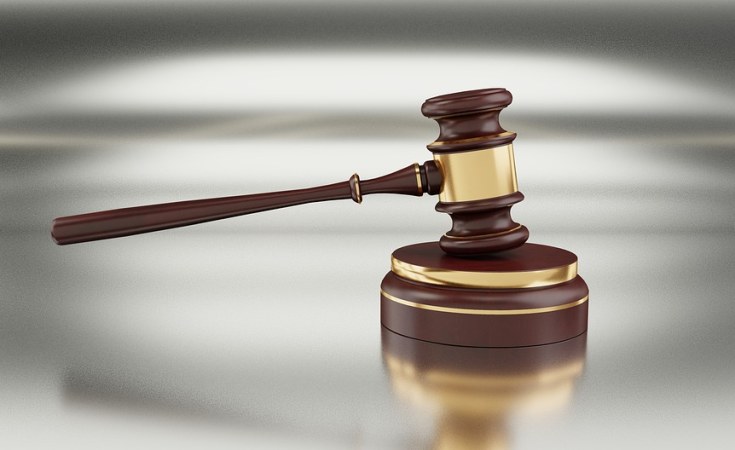Accused Recants Prior Testimony
The landmark trial of Guinea's former president and 10 others, including former ministers, accused of responsibility for a massacre and rapes in a stadium, resumed on Monday, July 10, 2023, after being suspended for a month and a half.
In one of the most brutal incidents in Guinea's history, Guinean security forces opened fire on protestors during a peaceful political rally at a stadium in the capital, Conakry on September 28, 2009. More than 150 were killed and more than 100 women were raped, after which security forces engaged in a coverup, moving bodies to mass graves.
Prior to the trial's suspension - which was over a boycott by the defense counsel with solidarity from the victims' lawyers, and then a nationwide prison guard strike - the judges had heard all 11 accused and moved to a second phase of trial, during which they heard dozens of victims.
The trial is broadcast live on Guinea television and has riveted the nation.
The trial's resumption is a relief for victims and their families, who have long awaited for justice for the massacre.
On Monday, the proceedings took a surprise turn when the hearing of victims by the judges was interrupted to give the floor to one of the accused, former presidential guard member Captain Marcel Guilavogui, who requested to take the floor a second time. This led to one of Guilavogui's lawyers ceasing his representation immediately before Guilavogui refuted his previous testimony. In his new statement, Guivalogui said the former president, Moussa Dadis Camara, along with others, have planned and executed the 2009 crimes. The former president's lawyers have continued to deny he had any responsibility for crimes committed in connection with the massacre. Guilavogui earlier indicated he had no personal knowledge of what happened during the massacre.
One lawyer who represents victims told Human Rights Watch that Guilavogui's statement offered new information, which will allow for further examinations that could help ensure the truth is uncovered.
The trial's resumption appears to have been possible because Guinea's Justice Ministry agreed to make financial assistance available to the lawyers, who say they lack adequate resources. The Guinean Bar Association helped facilitate negotiations on the issue, and the lawyers have given the Justice Ministry until the end of July to provide the requested assistance.
With defense counsel assistance not fully resolved, and amid larger budgetary issues, the trial's continued progress is of particular concern and should be prioritized. Guinean authorities and the country's international donors will need to work together to ensure this historic trial has adequate resources to proceed fairly and effectively so justice for the victims can be delivered.
Tamara Aburamadan, Counsel, International Justice Program
Elise Keppler, Associate Director, International Justice Program/Associate General Counsel


